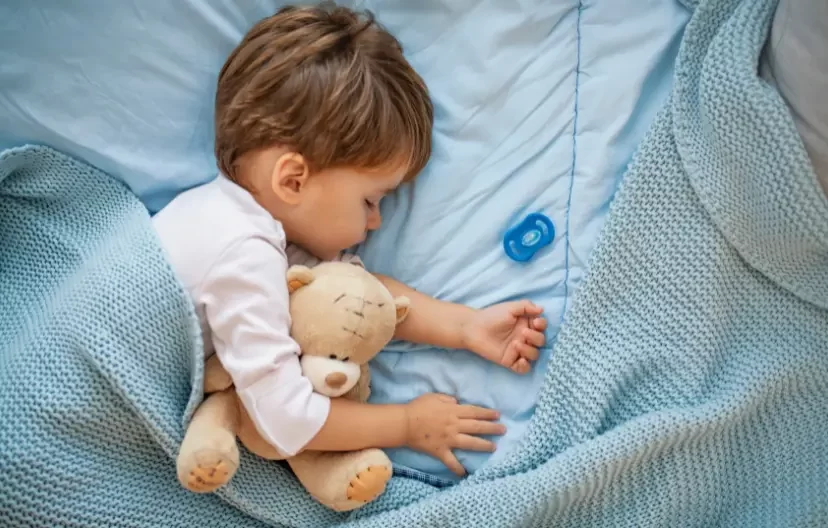How Much Sleep Do Kids Need?
We may earn a small commission for purchases made using our links (not affecting your price).
See our disclosure to learn more.
Sleep problems in children are a common problem for parents. The problem can occur at different life stages, usually in the first five months of a child’s development. How Much Sleep Do Kids Need? Sleeping is natural and essential. Parents often have to deal with kids who lack sleep. New parents soon discover child’s sleep quality can affect everyone at home. Sleep deprivation can affect a child’s learning ability, mood, and behavior. The importance of children getting enough sleep remains unchanged.
How much sleep do babies need on average?
Parents must be aware of the sleep requirements for their children. Children’s sleep sets the common sleep-training methods when parents want to get them into bed at the beginning of a new school year. The most important thing is establishing a good nighttime routine and focusing on quality sleep rather than quantity. As with adults, children need different amounts of rest. How much sleep does my child need? The question arises in my mind. No rule says toddlers need to sleep 12 hours. You must remember that every baby or child needs a different sleep schedule depending on his personality and development stage.
How Much Sleep Do Kids Need?
Most babies, and especially newborns, sleep a lot during the day. We will provide you with a sleep schedule for each age group based on the opinions of various pediatricians.
Newborns
The recommended amount for babies sleep younger than four months is at least eight hours. Babies sleep patterns can be unpredictable and not necessarily indicate an issue. Newborns sleep between 16 and 18 hours on a 24-hour day. Sleep can be divided into several naps. Infants seldom sleep all night. Kids rarely sleep through the night.
Infants
Between 4-11-month-old infants, they should sleep 12-16 hours daily. Even though many newborn babies sleep through the night by the time they are five months or older, infants can still get a lot of rest from daytime naps.
Toddlers
It is recommended that toddlers aged between 1 and 2 sleep 11-14 hours daily. They sleep less than newborns and only get 1 to 2 hours daily. Two naps are common at this age, but older kids may only sleep one afternoon nap.
Preschool
Preschoolers aged between three and five should sleep 10 to 13 hours daily. It’s the time when a preschooler may stop napping regularly or take shorter naps.
School-Age
Sleeping time for children of school age should be between nine and twelve hours per day. School-age children have a wider range of ages, so their needs may vary greatly. Children in primary school need more sleep than their middle or high school peers. As children approach adolescence, their sleep patterns change dramatically. It can create unique sleep issues for teens.
The steps should be taken so that kids can sleep enough.
- Babies Sleep problems affect up to half of all children.
- Parents and caregivers should discuss sleep with children and their pediatrician if there is any sign of a serious issue, such as insomnia.
- The first step to a peaceful and calm bedroom for a child is often the most effective way of promoting sleep.
- The right bedding for children of all ages can help them sleep better.
- Blue light from televisions, computers, and other gadgets should be minimized.
- Allowing children to relax and burn off excess energy before bed can make them sleep better and faster.
- By establishing good sleep habits, like a sleep routine and a consistent bedtime ritual, you can help your child learn the importance of sleeping on time.
What should you do if your child is not getting enough sleep?
It is important to clarify the impact of a baby’s feeding technique on sleep. Some studies show that formula-fed infants sleep better than breastfed ones. Some evidence suggests that breastfeeding babies sleep better in preschool, but it’s inconclusive. There is still much to be done to understand better how infant sleep and eating habits are related.
Why Should you help your kids sleep more?
If you’re worried about your child’s sleep, consult a doctor. A doctor can tell whether your child is sleeping normally or if there are any signs of an issue by using the sleep journal you maintain to track your child’s habits. Infants who have trouble sleeping at night can benefit from behavioral adjustments. Delaying bedtime will gradually increase a child’s tiredness, helping them sleep longer. Slowing the reaction time after waking up can also help.
FAQS
Why Sleep So Much Do Babies?
Sleep is essential for babies as they are growing rapidly. The brain grows when you sleep, and neural networks are formed that help with learning reasoning, and behavior development. Sleep and nutrition can help a baby grow, allowing them to become bigger and learn stronger motor skills.
Do Children Start Sleeping Over the Night?
When newborns reach 5 to 6 months, they develop a more regular sleeping pattern. It increases the chances that your baby will sleep through the night. According to the research, this milestone’s date can be very different. According to a study, infants aged 6 and 12 months did not sleep for eight or even 6 hours at night.
Do Children Usually Take Naps?
Many children nap, particularly toddlers and preschoolers. Even in these later years, napping can benefit memory and cognitive abilities. Early in life, naps are usually shorter and less frequent. It can be caused by a natural phenomenon or schedules for school and childcare.
Conclusion
Children’s development and well-being are dependent on sleep. Kids’ sleep-related issues affect the whole family, and parents often struggle with them. Sleep needs vary with age. It is essential to prioritize quality sleep and establish healthy sleeping habits. Parents should encourage physical activity and create consistent bedtime rituals if kids do not get enough sleep. Consulting a pediatrician will help you address sleep issues and advise on improving sleep habits. Children nap a lot, particularly in their toddler years and early preschool.




